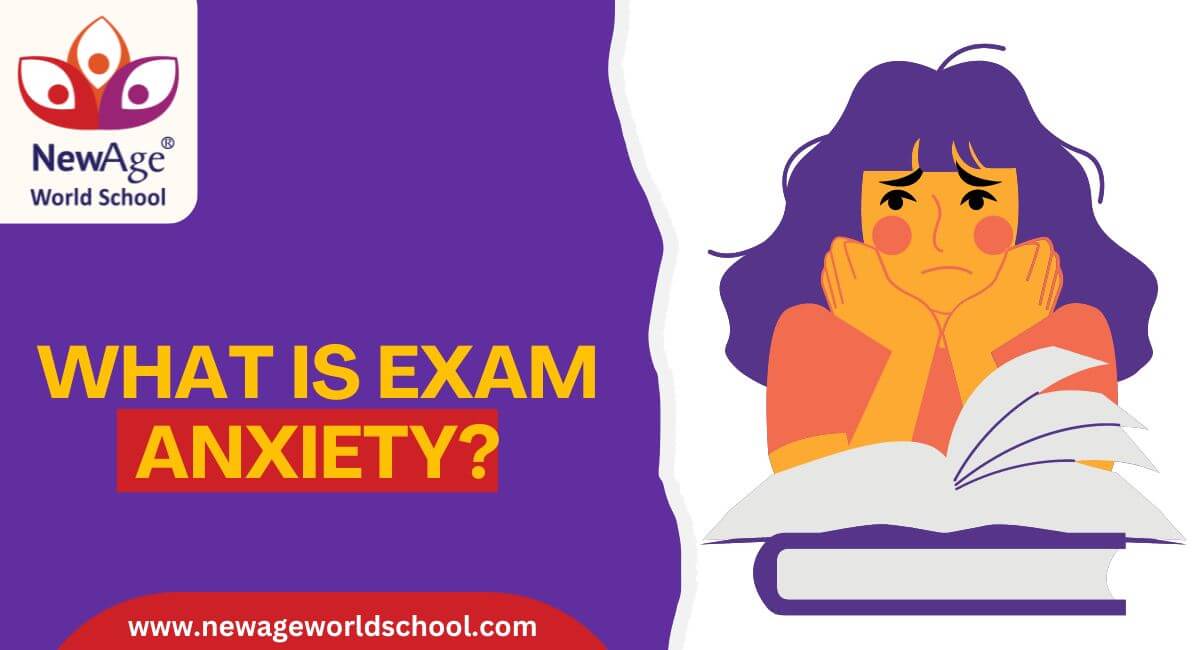How to Overcome Exam Anxiety? 8 Tips to Consider

Table of content
Introduction
What is Exam Anxiety?
What Causes Exam Anxiety?
How to Recognise Exam Anxiety?
What is the Impact of Exam Anxiety?
8 tips to Reduce Exam Anxiety Before Exams
- Visualization
- Breathing Techniques
- Exercise
- Mock Exams
- Aromatherapy
- Positive Affirmations
- Take Breaks
- Study for You
Conclusion
FAQ
Introduction
Hey, everyone. Exam time can be stressful, right? But don't worry, we're here to help you conquer those nerves with some effective and perhaps lesser-known strategies. Let's dive into how you can overcome exam anxiety and make the most of your study time. Whether you're a seasoned student or just starting your educational journey, mastering these stress management for students techniques is the key to unlocking your full potential.
What is Exam Anxiety?
Exam anxiety is a heightened feeling of worry or fear around exams. It's that uneasy feeling you get when you think about sitting down to take a test. This isn't just about being a little nervous; it's a serious issue that can affect your performance and well-being. According to Putwin and Daly (2014), in a class of 30, around five students are likely to experience test anxiety severe enough to impact their performance.
What Causes Exam Anxiety?
Many factors can cause exam anxiety. Here are a few common ones:
• Lack of preparation: Not feeling ready for the test.
• Fear of failure: Worrying about not passing or meeting expectations.
• Pressure: From parents, teachers, or even yourself.
• Poor stress management: Not knowing how to handle stress effectively.
• Past experiences: Previous bad experiences with exams.
• Mental health conditions: Existing issues like anxiety symptoms or depression.
How to Recognise Exam Anxiety
It's important to recognize the signs of exam anxiety so you can address it. Here are some symptoms to look out for:\
• Physical symptoms: Rapid heartbeat, shaking, stomach pain, headaches.
• Mental symptoms: Difficulty concentrating, racing thoughts, negative thoughts.
• Behavioural symptoms: Avoidance of studying or exams, lack of motivation, sudden changes in behaviour.
What is the Impact of Exam Anxiety?
Exam anxiety can have a significant impact on your academic performance and overall well-being. It can cause:
• Poor exam performance: Not doing as well as you could because of nerves.
• Mental health issues: Increased anxiety and depression.
• Physical health issues: Problems like headaches, stomach aches, and fatigue.
8 tips to Reduce Exam Anxiety Before Exams
Now, let's get into the good stuff: practical tips to help you manage exam anxiety and perform your best.
1. Visualization
Imagine yourself going through the entire exam process, from sitting down to finishing the last question confidently. Picture yourself calmly opening the exam paper, reading through the questions, and knowing exactly what to do. This technique helps prepare your mind for what's to come, making the actual exam feel more familiar and less intimidating. Visualization isn't just wishful thinking; it's a way to mentally rehearse and build confidence.
2.Breathing Techniques
You might have heard of deep breathing, but have you tried the 4-7-8 method? Breathe in for 4 seconds, hold for 7 seconds, and exhale for 8 seconds. This technique helps to calm your nervous system and reduces anxiety in exams by increasing the oxygen flow to your brain. The next time you feel exam stress creeping up, take a few minutes to practice this method. It’s amazing how something as simple as breathing can help you focus.
3.Exercise
Regular physical activity, like jogging, swimming, or even dancing, can significantly lower stress levels and improve your mood. Exercise releases endorphins, which are natural mood lifters. Plus, it gives you a break from studying and can help clear your mind. Think of it as hitting the reset button. The key is to find an activity you enjoy, so it doesn’t feel like a chore. When you’re mentally and physically fit, you’re more prepared to tackle those exams.
4.Mock Exams
Create an exam-like environment at home. Sit at a desk, set a timer, and complete a practice test without any breaks. This simulates the exam conditions and helps desensitize your anxiety responses. The more you practice under real exam conditions, the less intimidating the actual exam will be. Plus, it helps you get familiar with the format and timing, which can boost your confidence.
Check out more on effective study techniques and mock exams in our blog on Top Eight Powerful Habits of Successful Students.
5.Aromatherapy
Certain scents, like lavender or peppermint, can have a calming effect on the mind. Consider having a scented handkerchief or a small bottle of essential oil handy while studying or even during the exam if allowed. Aromatherapy can be a simple yet effective way to reduce exam anxiety and create a more relaxing study environment. It’s like having a little pocket of calm with you. Just a whiff of your favourite calming scent can make a big difference.
6.Positive Affirmations
Use positive phrases to challenge and overcome negative thoughts. Tell yourself, "I am prepared for this exam," or "I can handle this challenge." This boosts your confidence and reduces anxiety. It may feel silly initially, but positive affirmations reinforce a positive mindset. Remember, your thoughts have power. Instead of focusing on what could go wrong, remind yourself of your capabilities.
For more on maintaining a positive mindset, check out our blog on 10 Reasons Why a Positive Mindset is the Key to Academic Excellence.
7.Take Breaks
Remember to take breaks. Short breaks between study sessions and longer breaks after a few hours of studying can help prevent burnout. Use this time to unwind your mind and reward yourself. Grab a snack, take a short walk, or watch a funny video. The idea is to give your brain a chance to rest and recharge. It’s like hitting the refresh button on your computer. Breaks can improve your focus and productivity when you return to studying.
8.Study for You
Stop thinking of studying as an annoying task you must get out of the way. Approach it in a positive light, and remember, the more you know, the more successful you'll be in the field when you're working. Embrace the learning process and find ways to make it enjoyable. Remember, you’re not just studying for exams; you’re building knowledge that will help you in the future.
For more tips on effective study habits, check out our blog on Top Nine Effective Stress Management Techniques for Students.
Conclusion
Overcoming exam anxiety is not just about hard work but also about smart strategies to manage stress and anxiety. Try incorporating these techniques into your study routine and see what works best. Remember, it's about making studying manageable and less daunting.
If you found these tips helpful, share them with friends who might benefit from them. Happy studying!
Frequently Asked Questions
How do you make exams stress-free?
Make exams stress-free by creating a structured study schedule, using effective study techniques, and incorporating relaxation methods like aromatherapy and positive affirmations into your routine. Regular breaks and a positive mindset also contribute to a stress-free exam experience.
What are the symptoms of test anxiety?
Test anxiety symptoms include rapid heartbeat, shaking, stomach pain, headaches, difficulty concentrating, racing thoughts, and sudden changes in behaviour, such as avoidance of studying or lack of motivation.
How to calm down exam anxiety?
To calm exam anxiety, practice deep breathing techniques like the 4-7-8 method and use visualization to prepare mentally for the exam. Taking regular breaks and engaging in physical activities can also help reduce stress.
What are the three keys to academic success?
Effective study habits, time and stress management are crucial for academic success.
Why do I panic during exams?
Test anxiety can be due to fear of failure, high expectations, and pressure. Proper preparation and stress management can help reduce panic.
How do you relax for exam anxiety?
Use relaxation techniques like deep breathing, move on to easier questions if stuck, and focus on a calming object to reduce anxiety.
How do I overcome anxiety?
To help overcome exam anxiety, perform relaxation techniques, ensure you are well-prepared, and maintain a balanced diet and hydration.




















Leave a Reply
Your email address will not be published. Required fields are marked *
Comments
Deepa palani
Commented On: Aug 29, 2024
All of your 8 tips are more useful for improving our anxiety, Thanks Ms. Ayesha